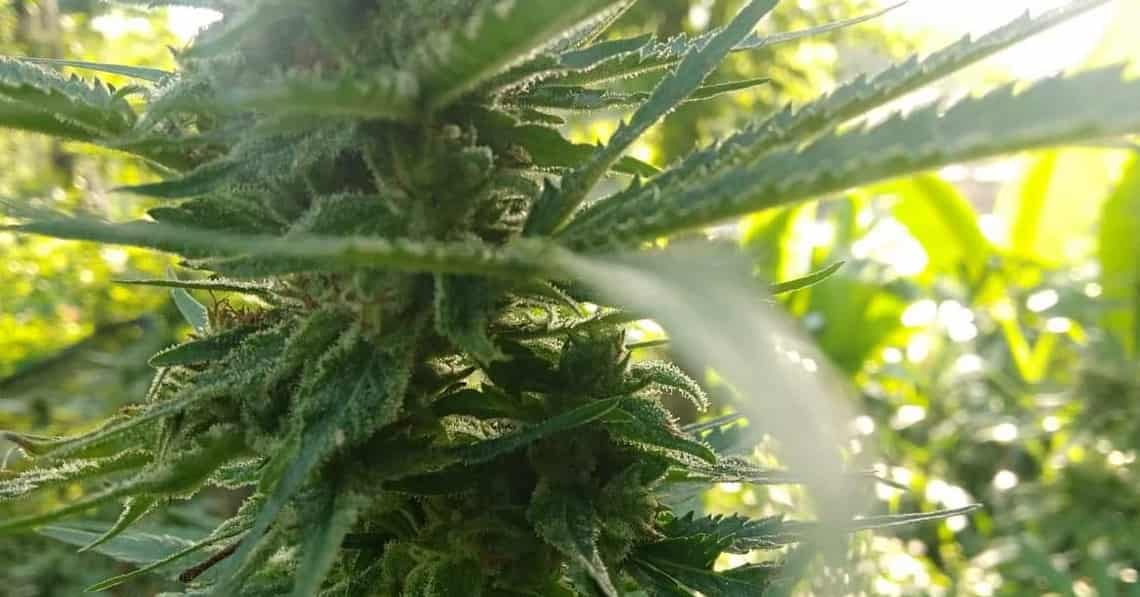Thailand is notorious for its harsh limitations on cannabis. However, things have changed – at least temporarily. After seeing misleading articles published in the past, I reached out to Kitty Chopaka, Thailand’s #1 cannabis advocate, to learn more about what’s happening. Here’s the exclusive on Thailand’s cannabis rescheduling and what to expect.

Kitty Chopaka, cannabis advocate and entrepreneur in Thailand Who is Kitty Chopaka? Kitty Chopaka, also known as “The Kitty,” is a Bangkok native whose main focus is cannabis legislative evolution. As a long-term cannabis user and advocate, her passion for cannabis and its applications – along with the potential for a global economy that includes it – drives her efforts. She has founded and worked with multiple cannabis-related endeavors, including Chopaka and Elevated Estate. Equally important to note is how she has been featured as an expert in cannabis in High Times, Vice, MG Magazine, CNN, Green Flower, among other publications. Her insights into Thailand’s cannabis laws stem from her experience running her father’s law firm. With business law knowledge and ever-changing cannabis laws as they pertain to the kingdom, she’s someone who continues to encourage Thailand’s cannabis movement.
Bangkok cannabis protest Cannabis Rescheduling in Thailand At midnight on June 9, 2022, Thailand removed cannabis from its list of narcotics. But what does this mean exactly? Cannabis is legal in Thailand. Seeds, stems, leaves, roots, and flowers are all in the same category as garlic. “So THC from cannabis is fine, but, in terms of products or anything else, if it’s not flowers, it’s still going to be considered narcotics,” Kitty explained. In essence, extracts and concentrates will still be viewed as narcotics in the Land of Smiles. However, all parts of the cannabis plant, including the flowers, will become accessible. “You’ll still need to go through the FDA to bring anything in,” Kitty explained. “Technically, even bringing in biomass, we’ll still have to go through the FDA since it will go through extractions.” “Inside the country, starting at midnight on the 9th of June, every part of the plant will become legal,” Kitty beamed. “And it’s all because the law was underestimated. They thought they could do it in 120 days, but it’s going to take at least another 2 months.” During that time, Thailand will have no rules on cannabis. Kitty and other ganjapreneurs in Thailand hold concerns that this free-for-all mindset may threaten the industry’s future. “I feel that because we fought so hard for this, a lot of people will impose their own rules,” she explained. “Like, we will be setting prices for a lot of producers that have flowers already – somehow,” she said with a mischievous smile. “We won’t say where the flowers come from beforehand, but after the 9th, it will become legal.” In preparation for Thailand’s green rush, Kitty and her team did everything in their power to help those who wanted to become part of the industry. She collaborated with Thailand’s ganjapreneurs, offering guidance that aimed to establish a sustainable marketplace for legal cannabis and related products. “We’re also working to educate the consumers. I’ve visited four states and so many dispensaries, so I’ve been collecting that knowledge over the last four years,” she explained. “I love the back end and how they deal with that. I’ll actually be writing down operational procedures to ensure people avoid jail time.” While Kitty is particularly busy preparing her Bangkok-based shop, Chopaka, for the expected rush on June 9th, I was fortunate enough to hop on a call with her to discuss the current cannabis situation. “I’m going through strains right now, and it’s like, oh my god,” she said. “We expect people to wrap around the store like snakes. But after a while, we’re sure it’s going to die down.”
Thai woman tending to medical marijuana The Future of Cannabis in Thailand Remains Uncertain Despite the rescheduling of cannabis in Thailand, the Kingdom’s future cannabis economy remains uncertain. “It sounds like freedom, but actually, it’s a gap in the law,” Kitty explained. “So, still, there are more rules that are not included in the Cannabis Act.” At this point, Kitty advises consumers to avoid smoking in public. Just as with cigarette smoking, police will not tolerate public cannabis smoke. “Usage will have to happen on private property rather than in public,” she said. “So, these public manners must be explained to consumers, as well. But the most challenging thing to control is the market; sometimes, we just cannot control it.” “People are so confused about cannabis law. I think that they need a model to copy and paste,” Kitty explained. “I will be opening my accounting books to the government after a month and let’s see if they’re going to say ‘no’ after seeing my one shop and the amount of tax income they will earn.” Kitty expects licensing to come in after two months. However, she worries that the very individuals who are building the foundation for Thailand’s cannabis sector might be excluded from experiencing the fruits of their labor. “But we’ll see,” she said. “We’re always preparing for the worst.” “I just want to prove a point,” she added. “It [cannabis legalisation] will help the economy, we’re not going to die, kids aren’t going to use it, we’re not going to go crazy. There’s a way to give them knowledge and give them responsibility so they can go and make that right decision.” “The more you don’t allow them to see cannabis, the more they’re going to want it,” she continued. “But by educating them and letting them know how to use it safely, maybe they’ll choose to not use it. Or maybe, if they choose to use it, they’ll do so safely.” Like many cannabis advocates, Kitty notes that The War on Drugs has never worked. She believes drugs are something that we have to deal with as a society.
So, how does this apply to you? As a cannabis consumer, if you find yourself in Thailand, keep flower consumption [smoking] to your private residence. Smoking in public is forbidden and technically, you can still be put in jail and/or fined. While jail time and fines are unlikely, they’re both possibilities. But minimally speaking, this is a matter of manners and being respectful in Thailand. Equally important to keep in mind is that smoking in public has the potential to further stigmatise cannabis consumption and encourage more rules to encapsulate it. “We need to be responsible, promote smart use and consumption, and highlight safety,” Kitty explained. “Education on what to do and what not to do when you’re high is essential. Also, what to do when you’re WAY too high.” “The discussion on how to keep it away from children is equally important,” she added. “But I think it’s more about having that talk with children, just as we explain alcohol to our children and keep it in the house.” “I say this to my kids, I explain one use is medical and one use is recreational. They know to ask, they’re kids, they’re curious,” she continued. “They want to know what’s that smell and what the adults are talking about. By the time you finish explaining, they’re bored and leave. If you keep it away from them, they’ll seek it.” Kitty also emphasizes the need to teach adults to teach their kids these things. “It seems the government isn’t doing much besides saying it’s legal or illegal,” she said. “They’re just giving the general information that’s black and white. But real life isn’t black and white, and it doesn’t represent living in Thailand.” “I believe I’ll be very busy for the next three months with Thailand’s cannabis sector,” Kitty concluded. “And once Thailand’s cannabis space is established, I’m coming for the UN! Don’t underestimate the Kitty!”
Read the article in full at AlpaCannabis where it was first published.
https://alpacannabis.com/kitty-chopaka-thailand-cannabis-rescheduling
